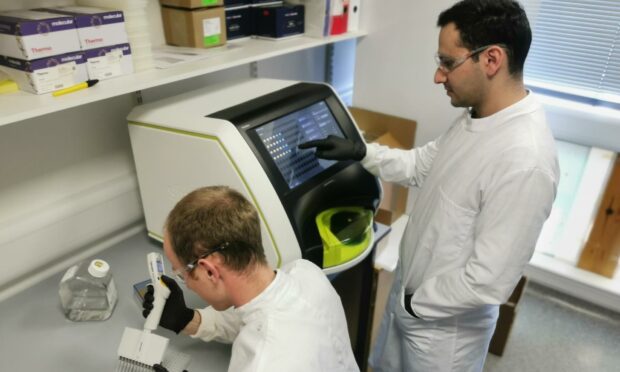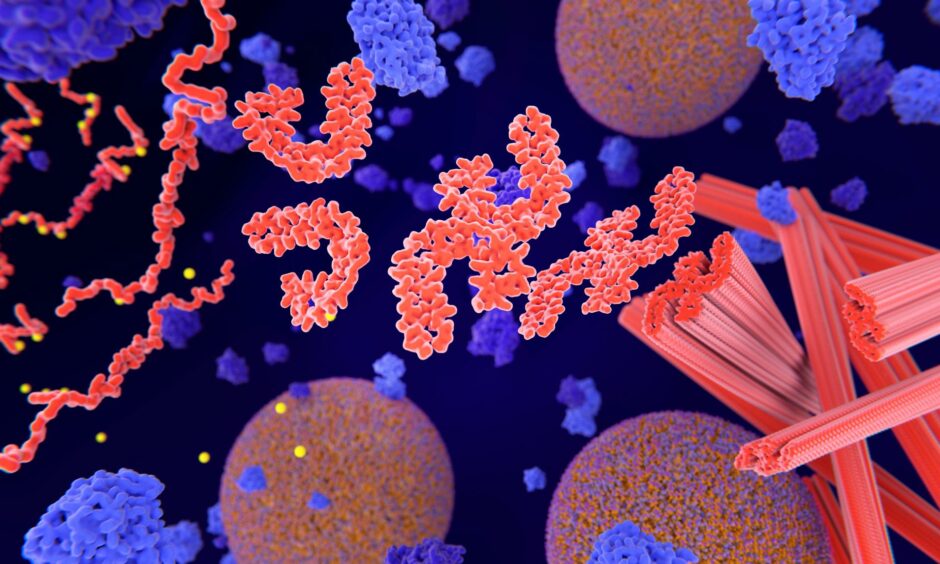Aberdeen scientists working on a blood test to detect Alzheimer’s disease – and potentially ways to prevent it developing – say their project has moved another step closer.
The team at the Scottish Biologics Facility, based at Aberdeen University, has been looking into this since 2017.
And while there are tests which can confirm a diagnosis, the north-east team has been looking at the step before this.
If successful, this could give people the chance to take preventative measures – slowing or even halting the disease altogether.
What are the scientists looking for?
Abnormalities in a type of brain protein, called tau, are now being recognised as one of the “hallmarks” of Alzheimer’s disease.
When healthy, they look like a string of pearls and are responsible for transporting nutrients between brain cells.
But those affected by Alzheimer’s fold in on themselves, instead looking more like a “hairpin”.
This leads them to start clumping together, creating tangles that can kill off cells and cause dementia.
Development of Alzheimer’s test could lead to ‘holy grail’
The SBF researchers believe there’s the potential to develop a test which can identify these abnormal proteins, requiring only a blood sample.
It could inform people of their Alzheimer’s “risk status” before they’ve developed symptoms – and open up possibilities for prevention and treatments.
The goal of a simple blood test for Alzheimer’s disease now at least seems possible.”
Dr Soumya Palliyil, who heads up the SBF, said: “Early data suggests the same antibodies could be developed to remove these disease-causing structures as a possible treatment of disease.
“The holy grail would be to use our antibodies to stop the formation of tau aggregates in the first place.”
The organisation’s director, Prof Andy Porter, said: “In a post-Covid world we are used to antibody technology in the form of lateral flow tests.
“The goal of a simple blood test for Alzheimer’s disease now at least seems possible.”
Alzheimer’s drug test results due in months
The SBF has been awarded £1 million to continue the research, backed by Genting TauRx Diagnostic Centre and Aberdeen-headquartered TauRx Pharmaceuticals.
Both organisations have been at the forefront of Alzheimer’s disease research for decades, and are in the final stages of a clinical trial for a drug which could delay the onset of symptoms.
The results of this are expected by mid-2022.
TauRx co-founder and executive chairman, Professor Claude Wischik, said the new breakthroughs could prove vital – but also lead to longer waiting times.
“We know there are bottlenecks in the diagnostic pathway for patients due to lengthy wait times for specialist scans,” he said.
“This will be exacerbated in the event of a therapeutic breakthrough, when patients will have greater incentive to secure a diagnosis and seek treatment.
“The work of SBF is valuable in helping take us all a step closer to achieving this much needed transformation.”


